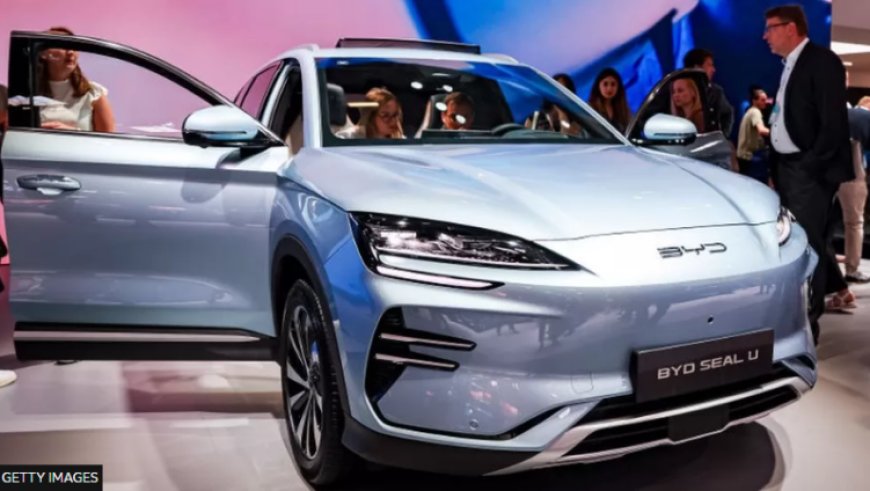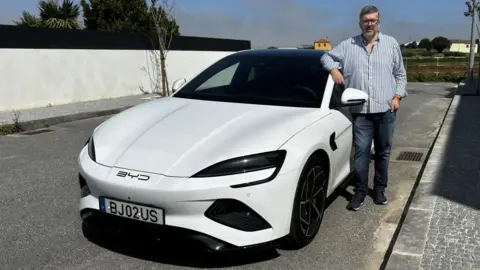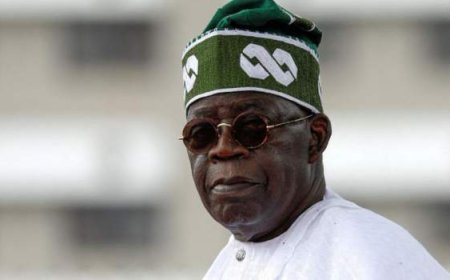EU Raises Tariffs on Chinese Electric Vehicles to Protect Motor Industry
The European Union imposes new tariffs on Chinese electric vehicles, aiming to protect its motor industry from unfair competition.

The European Union has announced new tariffs on Chinese electric vehicles (EVs) in a bid to safeguard its motor industry. The new tariffs range from 17.4% to 37.6% for individual manufacturers, in addition to the existing 10% duty on all EV imports from China. This move could significantly increase the price of EVs across the EU, affecting affordability for consumers.
This decision is a significant setback for Beijing, which is already embroiled in a trade war with Washington. The EU is China’s largest overseas market for EVs, and the country is relying on high-tech exports to boost its struggling economy. EU officials argue that the surge in Chinese EV imports is due to "unfair subsidization," allowing these vehicles to be sold at much lower prices compared to those produced within the EU.
China has consistently denied these allegations, which have also been made by the US. The new tariffs, effective from Friday, are provisional pending an investigation into Chinese state support for its EV manufacturers. Full imposition of these tariffs is expected later this year.
Winners and Losers in the Trade Dispute
The tariffs impact not only Chinese brands but also Western firms manufacturing cars in China. By imposing these tariffs, Brussels aims to correct what it perceives as a distorted market. While the US has raised its tariffs on Chinese EVs to 100%, the EU’s decision, though less severe, could have more significant consequences due to the higher presence of Chinese EVs in Europe compared to the US.
Chinese EV sales in the EU have risen sharply, from 0.4% of the market in 2019 to nearly 8% in 2023, according to the Brussels-based green group Transport and Environment (T&E). Firms like BYD and Shanghai Automotive Industry Corporation (SAIC) could see their market share increase to 20% by 2027, T&E projects.
The new tariffs are calculated based on estimates of state aid received by each firm. Companies that cooperated with the EU probe received reduced duties. SAIC faces the highest new tariff at 37.6%, while BYD, which received a 17.4% tariff, could gain a competitive edge in the European market.

Impact on Consumers and Manufacturers
For consumers like Patryk Krupcala from Poland and Luís Filipe Costa from Portugal, the decision to buy Chinese-made EVs was driven by cost-effectiveness. However, the new tariffs might deter future purchases. Tesla, the largest exporter of EVs from China to Europe, is seeking a specific tariff rate, which will be determined at the end of the investigation.
Localizing production could be a strategic response to the tariffs. Companies like BYD and Chery are already planning to build factories in the EU to mitigate the impact of these duties. This move aligns with the EU's objective to encourage investment within the region rather than reliance on imports.
Broader Economic Implications
China’s EV industry, bolstered by over $230 billion in state support since 2009, has become a global leader. The International Energy Agency reported that China accounted for more than 60% of the world’s new electric car sales last year. However, the new EU tariffs threaten this dominance, particularly as exports are crucial for offsetting domestic losses due to price wars.
As China grapples with an economic slowdown, it is attempting to "export its way out" of the slump by focusing on EVs as a key growth driver. However, increasing trade barriers from major markets like the EU and the US could exacerbate trade tensions and challenge China’s economic recovery strategy.
What's Your Reaction?




































































